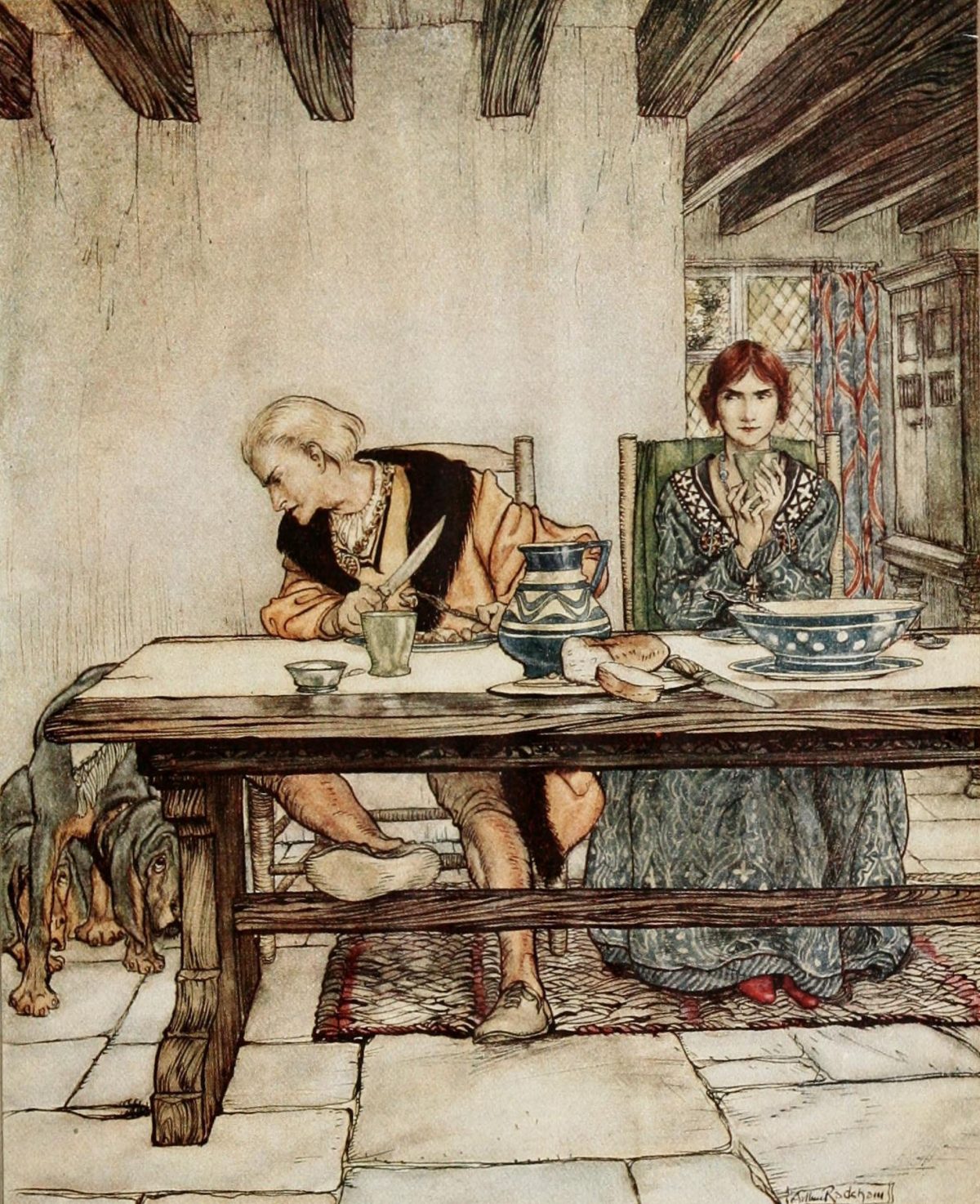‘O where ha’ you been, Lord Randal, my son?
And where ha’ you been, my handsome young man?’
‘I ha’ been at the greenwood; mother, mak my bed soon,
For I’m wearied wi’ hunting, and fain wad lie down.
‘An wha met ye there, Lord Randal, my son?
An wha met you there, my handsome young man?’
‘O I met wi my true-love; mother, mak my bed soon,
For I’m wearied wi’ hunting, and fain wad lie down.’
‘And what did she give you, Lord Randal, my son?
And what did she give you, my handsome young man?’
‘Eels fried in a pan; mother, mak my bed soon,
For I’m wearied wi’ hunting, and fain wad lie down.’
‘And wha gat your leavins, Lord Randal, my son?
And wha gat your leavins, my handsome young man?’
‘My hawks and my hounds; mother, mak my bed soon,
For I’m wearied wi’ hunting, and fain wad lie down.’
‘And what became of them, Lord Randal, my son?
And what became of them, my handsome young man?’
‘They stretched their legs out an died; mother, mak my bed soon,
For I’m weary wi’ hunting, and fain wad lie down.’
‘O I fear you are poisoned, Lord Randal, my son!
I fear you are poisoned, my handsome young man!’
‘O yes, I am poisoned; mother, mak my bed soon,
For I’m sick at the heart, and I fain wad lie down.”
‘What d’ ye leave to your mother, Lord Randal, my son?
What d ‘ye leave to your mother, my handsome young man?’
‘Four and twenty milk kye; mother, mak my bed soon,
For I’m sick at the heart, and I fain wad lie down.’
‘What d’ ye leave to your sister, Lord Randal, my son?
What d’ ye leave to your sister, my handsome young man?’
‘My gold and my silver; mother, mak my bed soon,
For I’m sick at the heart, and I fain wad lie down
‘What d’ ye leave to your brother, Lord Randal, my son?
What d ‘ye leave to your brother, my handsome young man?’
‘My house and my lands; mother, mak my bed soon,
For I’m sick at the heart, and I fain wad lie down.’
‘What d’ ye leave to your true-love, Lord Randal, my son?
What d ‘ye leave to your true-love, my handsome young man?’
‘I leave her hell and fire; mother, mak my bed soon,
For I’m sick at the heart, and I fain wad lie down.’
– Traditional, Anonymous
One of the interesting types of poetry existing in the great corpus of English literature is the ballad; more particularly, the old Scottish or English ballad. It belongs to the magnificent store of oral literature (folk poems) that has survived, some of which probably date back to the Middle Ages. Various factors in the political context of these poems provide profoundly interesting studies.


